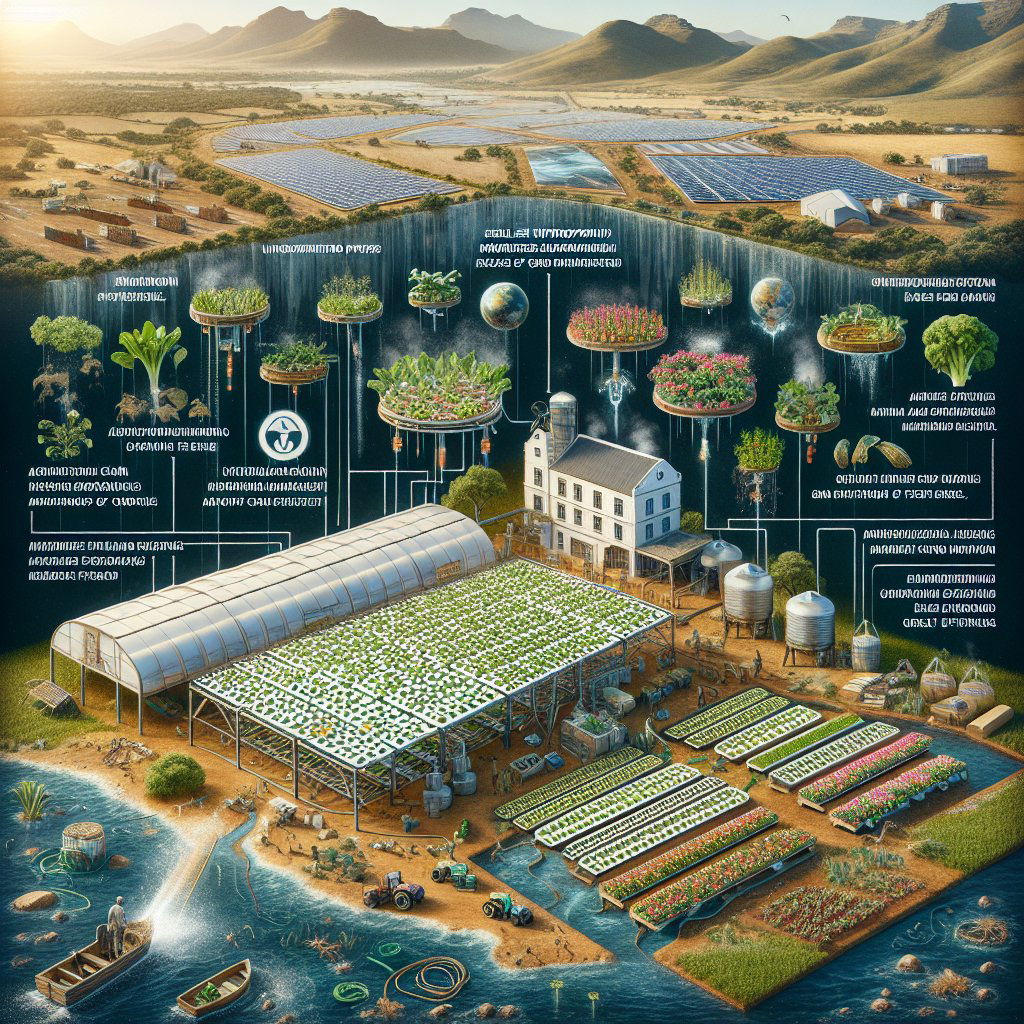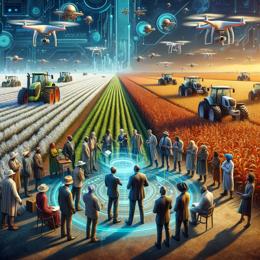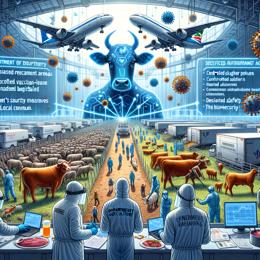Image: AI generated for illustration purposes
Hydroponic Smart Farming: A Revolutionizing Force in South African Agriculture
The agricultural sector in South Africa is undergoing a significant transformation as hydroponic smart farming starts to gain widespread acknowledgment as a viable and progressive method of cultivation. This agricultural practice, which does not rely on soil for plant growth, is catapulting the nation’s farming into a new era of efficiency and sustainability.
At the heart of this transformation is Tebogo Masobe from Lomanyaneng, a visionary farmer whose soilless vegetable farm is a testament to the power of innovation. He specializes in a bouquet of leafy greens such as lettuce, spinach, and cabbage, as well as herbs and edible flowers, grown exclusively through hydroponic systems. These systems do not currently support tuberous plants like potatoes, but advances in the technology may soon change that.
Masobe is proving that even with a limited amount of land, farming operations can be significantly intensified to achieve proportionately greater yields through hydroponics. One of the standout features of his operation is the use of solar power, which eliminates the risk of power outages. His farm remains operational even during load shedding, a common problem in South Africa.
The environmental benefits of Masobe's farming method cannot be overstated. The hydroponic system recycles water continually, showcasing exceptional water use efficiency—a feature that Professor Nomali Ngobese from North West University's Faculty of Agricultural Sciences emphasizes is crucial considering the country's water scarcity issues. The closed-loop systems conserve water while ensuring plants receive the nutrients they need.
Moreover, organic farming practices are at the center of Masobe's hydroponic enterprise. Rejecting genetically modified crops and hazardous chemicals, he opts for organic fertilizers to ensure the quality of his produce. This approach not only aligns with the global trend toward organic consumption but also assures consumers about the healthiness of their food.
The combination of hydroponic technology with organic principles could well be the blueprint for future farming endeavors in South Africa. With water levels dwindling and climate change posing a growing threat to traditional farming practices, hydroponic systems are a beacon of hope. They serve as a model of how agriculture can adapt to, and potentially mitigate, some of the challenges posed by a changing environment.
Installing more hydroponic systems could indeed be a strategic move to safeguard South Africa’s limited water supply while increasing the productivity and resilience of its agricultural sector. As the world continues to grapple with the pressing need for sustainable farming methods, South Africa's alignment with hydroponic smart farming is setting a precedent that others could follow.
This shift also underscores the potential opportunities for employment, innovation, and technological development within the agricultural sector. Entrepreneurs like Masobe are leading the way, but as the benefits of hydroponics become more widely recognized, it is expected that a growing number of South African farmers will embrace the technique, further revolutionizing the agricultural landscape of the country.
As water scarcity and food security become increasingly pressing global issues, South Africa's move toward sustainable agricultural practices such as hydroponics positions the country as a leader in innovative farming solutions. This trend is one to watch, as it may not only change South African agriculture but could also offer insights and inspire sustainable farming transformations globally.










